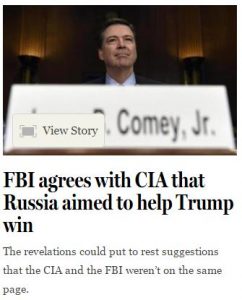 There are several possible explanations for Trump’s position. They are not mutually exclusive. First, he may be trying to shore up his political standing before the Electoral College vote on Monday. Second, he may be attempting to undermine the credibility of US intelligence agencies in advance of his taking office so that he can intimidate them and have a freer hand in reshaping the intelligence product to suit his objectives. Third, he may be testing his ability to go over the heads of intelligence professionals and congressional critics and persuade the American public to follow his version of the truth about national security threats. And finally, he may be seeking to cover up evidence of involvement or prior knowledge by members of his campaign team or himself in the Russian cyberattack.
There are several possible explanations for Trump’s position. They are not mutually exclusive. First, he may be trying to shore up his political standing before the Electoral College vote on Monday. Second, he may be attempting to undermine the credibility of US intelligence agencies in advance of his taking office so that he can intimidate them and have a freer hand in reshaping the intelligence product to suit his objectives. Third, he may be testing his ability to go over the heads of intelligence professionals and congressional critics and persuade the American public to follow his version of the truth about national security threats. And finally, he may be seeking to cover up evidence of involvement or prior knowledge by members of his campaign team or himself in the Russian cyberattack.
In light of these circumstances, Trump should seek to clear the air by endorsing the proposed investigation of the Russian hacking scandal. For him to continue to deny Russia’s cyberattack and resist the investigation invites a specter of treason to hover over the president-elect.
In each case the president-elect is inviting an interpretation that his behavior is treasonous. The federal crime of treason is committed by a person “owing allegiance to the United States who . . . adheres to their enemies, giving them aid or comfort,” and misprision of treason is committed by a person “having knowledge of the commission of any treason [who] conceals and does not disclose” the crime. By denigrating or seeking to prevent an investigation of the Russian cyberattack Trump is giving aid or comfort to an enemy of the United States, a crime that is enhanced if the fourth explanation applies — that he is in fact seeking to cover up his staff’s or his own involvement in or prior knowledge of the attack.
http://www.bostonglobe.com/opinion/2016/12/16/trump-raises-specter-treason/zdwgXRuJBMChEXmX5kchhP/story.html?event=event25
